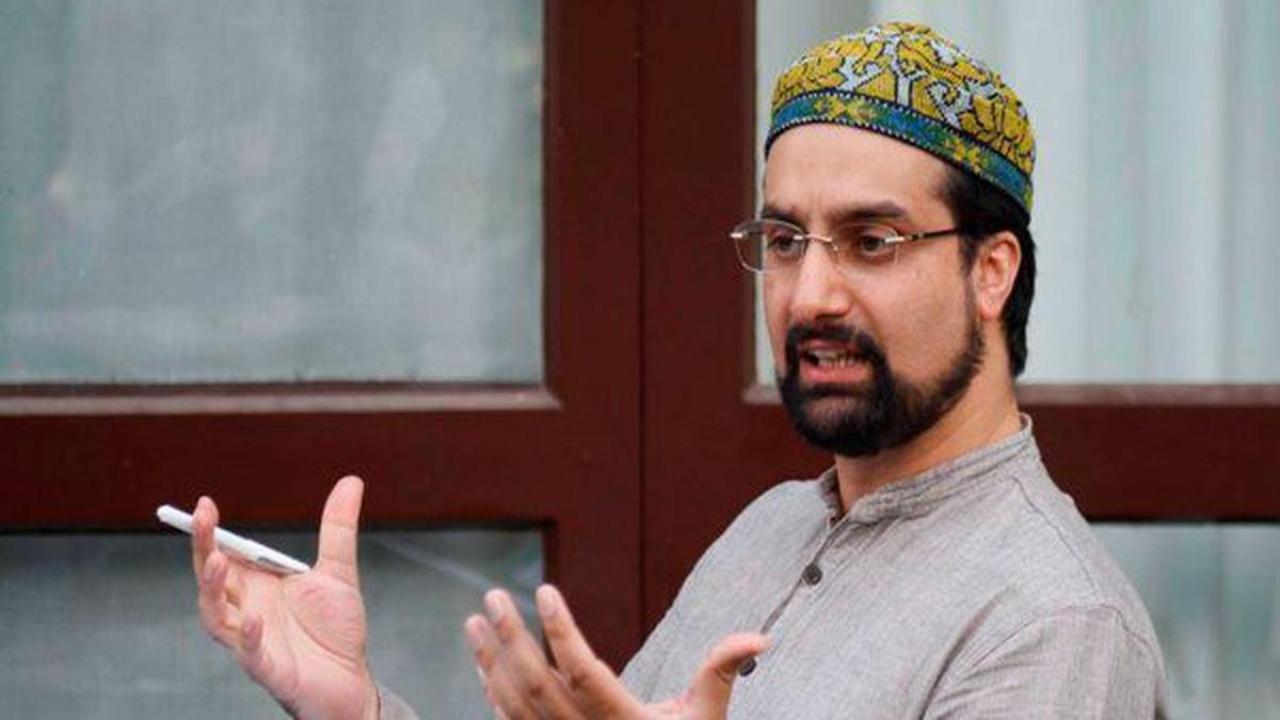Hurriyat Conference chairman Mirwaiz Umar Farooq Tuesday while expressing disappointment over the Supreme Court's Article 370 verdict, noted that it was not unexpected in the current circumstances

Hurriyat Conference leader Mirwaiz Umar Farooq. File Photo
Hurriyat Conference chairman Mirwaiz Umar Farooq Tuesday while expressing disappointment over the Supreme Court's Article 370 verdict, noted that it was not unexpected in the current circumstances.
ADVERTISEMENT
Mirwaiz in a statement said the sense of betrayal felt by those who, during the partition of the subcontinent, played a role in the accession of Jammu and Kashmir (J&K) to India. He emphasized that the people who placed trust in the promises and assurances made by the Indian leadership must now grapple with a deep sense of betrayal.
“People who at the time of the partition of the subcontinent, facilitated the accession of J&K and reposed their faith in the promises and assurances given to them by the Indian leadership must feel deeply betrayed.”
He said that for the rest of the state as it existed in August 1947 remains divided on the ceasefire line, and hence continues to be a bleeding humanitarian and political issue, begging redressal.
Meanwhile, Jammu and Kashmir National Conference MP Farooq Abdullah on Tuesday said India's first prime minister Jawaharlal Nehru was not responsible for Article 370, as he expressed disappointment over the Supreme Court's order upholding its abrogation.
Abdullah's response came after Home Minister Amit Shah in Parliament blamed Nehru for the Kashmir problem, pointing to the "mistakes" of ordering an "untimely" ceasefire and taking the issue to the United Nations.
Abdullah told reporters, "I don't know why they have venom against Nehru. Nehru is not responsible. When Article (370) came, Sardar Patel was there."
"Nehru was in America when the Cabinet meeting happened. Shyama Prasad Mukherjee was also present when the decision was made," said Abdullah, a former chief minister of the erstwhile state.
In a significant victory for the Modi government, the Supreme Court on Monday unanimously upheld the 2019 revocation of Article 370 of the Constitution that gave special status to the erstwhile state of Jammu and Kashmir even as it ordered assembly elections there by September-end and restoration of statehood "at the earliest".
Settling the decades-long debate over the contentious issue of Article 370 after a marathon 16-day hearing, the five-judge bench delivered three concurring judgements upholding abrogation of Article 370 that provided a unique status to Jammu and Kashmir when it acceded to the Union of India in 1947.
"The matter was in their hands from the beginning. Let's see what happens in the future," Abdullah said, reacting to the verdict.
Asked if the abrogation had ushered development in Jammu and Kashmir, he said, "Go there and see for yourself".
"We want elections to be held. We were hoping that if the Supreme Court will remove (Article) 370, they will also ask for elections to be held immediately. They gave time till September, what is the point? On statehood they said they'll talk about it later. Where is justice?," he added.
Asked about India's claim on Pakistan-Occupied-Kashmir, he said, "This decision has to be taken by the government. We have never stopped anyone... We are nothing..."
 Subscribe today by clicking the link and stay updated with the latest news!" Click here!
Subscribe today by clicking the link and stay updated with the latest news!" Click here!







